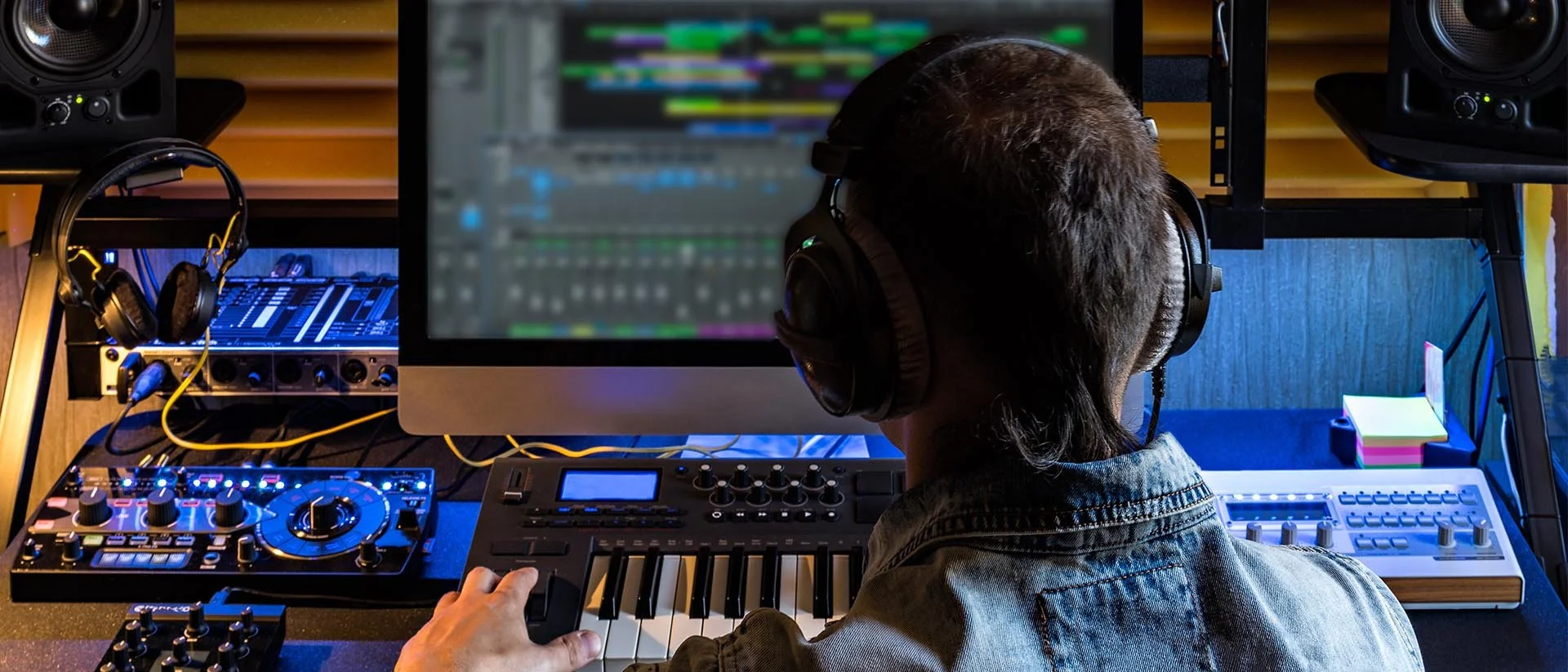The Magic of Film Soundtracks: How Music Elevates the Movies We Love
Written by: The Buddi Team
Imagine watching a movie without its soundtrack. The tension of a suspenseful scene would lose its edge, the joy of a triumphant moment would feel flat, and the romance of a heartfelt kiss would lack its emotional punch. Film soundtracks are more than just background music; they are the unsung heroes that elevate our cinematic experiences, weaving emotions and stories together in ways that visuals alone sometimes cannot. Let’s dive into the world of film soundtracks and explore why they’re so crucial and beloved, with a few notable examples that highlight their impact.
The Power of Music in Film
Film soundtracks serve as the emotional backbone of a movie. They enhance scenes, underscore emotions, and sometimes even become as iconic as the films themselves. A well-composed score can make a film memorable, turning a simple scene into a profound experience. Here’s why soundtracks are so important:
Setting the Tone: Music sets the mood and tone for a film, guiding the audience's emotional response. Whether it’s the haunting melody in a horror film or the upbeat rhythm in a comedy, the soundtrack helps to establish the atmosphere.
Enhancing Emotional Impact: A powerful soundtrack can amplify the emotional weight of a scene. Think of how the swelling strings in a dramatic moment can make your heart race or the nostalgic tune that brings tears to your eyes.
Creating Memorable Moments: Some soundtracks become so intertwined with a film that they’re instantly recognizable. The music often lingers long after the credits roll, becoming a beloved part of popular culture.
Supporting Narrative and Character Development: Music can also play a role in storytelling, reflecting a character’s development or the progression of the plot.
Iconic Examples of Film Soundtracks
Let’s explore some film soundtracks that have not only enhanced their respective movies but have also left a lasting impact on audiences:
1. “Star Wars” (1977) - John Williams
One of the most iconic film scores in history, John Williams’s “Star Wars” soundtrack is a masterpiece of orchestral composition. The opening theme, with its powerful brass and sweeping strings, has become synonymous with space adventure and heroism. Williams’s use of leitmotifs—the recurring musical themes associated with characters or ideas—creates a rich, immersive experience that deepens the film’s storytelling.
The “Imperial March,” for example, is instantly recognizable and evokes a sense of menace and grandeur. This soundtrack not only enhanced the film’s epic scale but also set a new standard for sci-fi and fantasy music.
2. “The Godfather” (1972) - Nino Rota
Nino Rota’s hauntingly beautiful score for “The Godfather” captures the film’s atmosphere of power, family, and tragedy. The main theme, with its melancholic melody and evocative orchestration, perfectly complements the film’s exploration of the Corleone family’s complex dynamics.
The music adds depth to the film’s themes and characters, enhancing moments of both quiet introspection and intense drama. Rota’s score has become a classic, celebrated for its ability to encapsulate the essence of the film’s narrative and mood.
3. “Titanic” (1997) - James Horner
James Horner’s score for “Titanic” is another example of a soundtrack that transcends its film. The iconic song “My Heart Will Go On,” performed by Celine Dion, became a cultural phenomenon and remains closely associated with the film’s epic romance and tragic ending.
Horner’s score blends orchestral and folk elements, reflecting the grandeur of the ship and the intimate love story at its heart. The music’s emotional resonance helped make “Titanic” one of the highest-grossing films of all time and a beloved classic.
4. “Guardians of the Galaxy” (2014) - Various Artists
“Guardians of the Galaxy” brought a fresh twist to the concept of a film soundtrack with its retro mix of 1970s hits. The film’s “Awesome Mix” soundtrack, curated by James Gunn, features classics like “Hooked on a Feeling” by Blue Swede and “Cherry Bomb” by The Runaways.
The soundtrack not only serves as a nostalgic trip through the past but also plays a crucial role in shaping the film’s quirky, irreverent tone. It’s a testament to how music can be used creatively to enhance a film’s character and atmosphere.
5. “Inception” (2010) - Hans Zimmer
Hans Zimmer’s score for “Inception” is a masterclass in creating tension and intrigue. The use of a slowed-down version of Edith Piaf’s “Non, Je Ne Regrette Rien” as a recurring motif cleverly ties into the film’s themes of dreams and reality.
Zimmer’s powerful and complex compositions elevate the film’s intricate narrative, creating a sense of urgency and depth. The soundtrack’s memorable themes and innovative soundscapes have earned it a place among the most influential film scores of the 21st century.
The Impact of Film Soundtracks on Popular Culture
The influence of film soundtracks extends far beyond the theater. Memorable scores and songs often find their way into our everyday lives, becoming part of the cultural fabric. Whether it’s a catchy tune that gets stuck in your head or an emotional melody that brings back memories of a favorite film, soundtracks have a unique ability to connect with people on a personal level.
Cultural Resonance: Iconic soundtracks become cultural touchstones, influencing other media and becoming part of the collective consciousness. They often evoke strong emotions and memories, linking fans to the films they love.
Musical Influence: Film scores and soundtracks can also impact the music industry, inspiring new compositions and influencing musical trends. For example, the success of “Guardians of the Galaxy”’s soundtrack sparked renewed interest in classic pop and rock music.
Fan Engagement: Soundtracks often lead to fan events, concerts, and merchandise, allowing audiences to engage with their favorite films in new ways. Live performances of film scores and soundtrack albums are popular among fans who want to experience the music in a different context.
In Conclusion: The Sound of Cinema
Film soundtracks are more than just a backdrop to the action on screen—they are integral to the emotional and narrative impact of movies. From the sweeping orchestras of epic sagas to the nostalgic hits of retro comedies, music plays a crucial role in shaping our cinematic experiences.
The next time you watch a film, take a moment to appreciate the soundtrack and its contribution to the story. Whether it’s a dramatic score or a catchy tune, the music is there to enhance, elevate, and immerse you in the world of the film. As we continue to celebrate the magic of cinema, let’s not forget the power of the soundtrack to stir our emotions and create unforgettable moments.
Check out Buddisystems
Sign up for Buddisystems today and unlock a world of creative possibilities!



